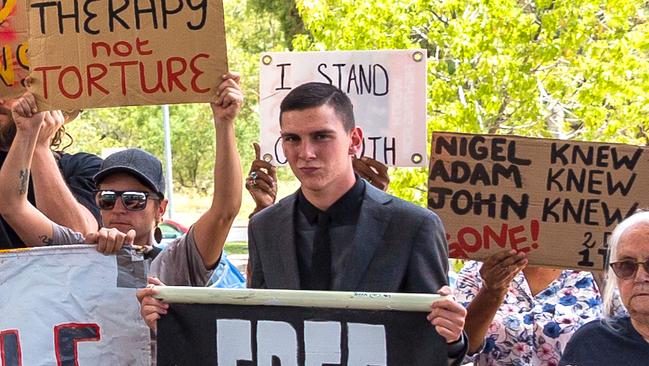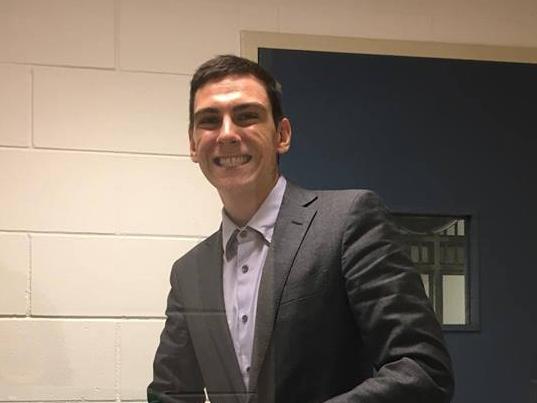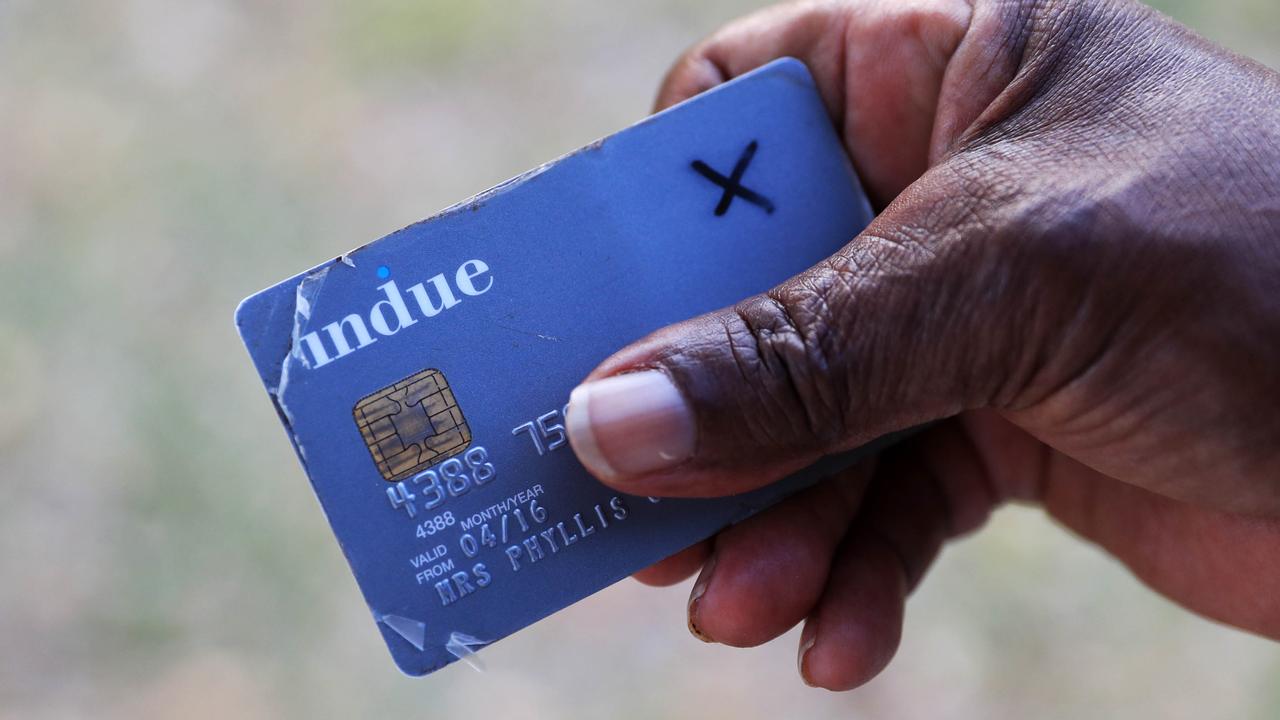Dylan Voller leads protest at juvenile justice royal commission
The former teen inmate at the centre of the NT royal commission into juvenile justice has rallied behind other young offenders.

The former teen inmate at the centre of the Northern Territory’s royal commission into juvenile justice has rallied behind other young offenders who have suffered abuse behind bars.
Footage of Dylan Voller being tear-gassed, spit-hooded and shackled to a restraint chair prompted Prime Minister Malcolm Turnbull to call the inquiry, which resumed hearings in Alice Springs today.

Speaking outside the commission alongside family and protesters, Voller said he wanted to support the other young people giving evidence.
“Everyone else from around the country and around the world supported me, so it’s my turn to give back while I’ve got an open voice,” he said.
Voller was jailed in 2014 for a violent, ice-fuelled crime spree but was granted bail last month to begin a rehabilitation program, months ahead of his planned release in October.
The 19-year-old said his stint at the Alice Springs-based Bush Mob camp was going well, and that he was horse riding and had a job.
Voller refused to comment on a handwritten list he reportedly wrote while in jail of people he wanted dead and detailing how he would kill them. On Friday Margaret White said she and fellow commissioner Michael Gooda were “disturbed” by the leak of the document that was provided to the inquiry and demanded the NT government explain how it was given to the media.
Inside the commission, a juvenile witness has told how his complaints about alleged abuses in custody were repeatedly ignored or mishandled by authorities, including by some agencies that have loudly criticised others for failings in youth justice.
Jamal Turner, 20, told the Royal Commission into the Protection and Detention of Children in the Northern Territory he had grown up in Alice Springs and started getting into trouble after family members introduced him to drugs, first cannabis and then ice, when he was a teenager.
He described an incident at Aranda House youth detention facility in Alice Springs in which he said he had gone to pat a dog but a guard who was with him, Derek Tasker, mistook the move as an attempted escape and allegedly pinned Mr Turner up against a wall by his throat.
The commission heard that an incident report filed at the time recorded Mr Turner kicking the dog and being spoken to harshly afterwards, but Mr Turner said the report was incorrect.
Mr Turner described another incident in which he claimed Mr Tasker had “kicked me up the arse” after the teenager took an apple he had been told he could not have. He acknowledged a report of that incident was mostly right “except for the bit where (Mr Tasker) assaulted me.”
During cross-examination, Mr Turner at times struggled to recall details and said he was unable to describe things such as the pain from the alleged kick, which he said was “not light”.
Mr Tasker, who has twice been acquitted of charges involving Dylan Voller, is due to give evidence later this week.
Counsel assisting, Tony McAvoy SC, seemed at pains to avoid reading details from the incident reports into the commission’s oral record. The Australian has requested copies of the documents from the commission’s staff.
Commissioners Margaret White and Mick Gooda took particular interest in Mr Turner’s descriptions of Aranda House as like a lightless “cage” or “dungeon” comparable to a “maximum security adult prison”.
Later, Commissioner white asked: “Did you have any good relationships with any of the guards?”
“Yes, I got along good with most of them,” Mr Turner replied.
No one probed further.
Mr Turner told the commission he had complained several times to the NT Ombudsman, to other youth detention centre staff and visitors and to his lawyer, who he said was part of the Central Australian Aboriginal Legal Aid Service. In a statement tendered as evidence, Mr Turner also said he had also complained to the NT Children’s Commissioner.
“I didn’t think it was going anywhere so I just gave up trying to complain,” he told the commission.
Current and former children’s commissioners and some associates of CAALAS been vocal critics of the NT youth justice system.
Commissioner White asked Mr Turner whether he could remember any single complaint from which he had received any follow up. Mr Turner testified that he could not. It is not known whether his memory his correct.
During Mr Turner’s testimony this morning, which lasted about two hours, NT Police issued three press releases about delinquent juveniles involved in crimes in Alice Springs.
In one, police said they had arrested a 16-year-old youth absconder from youth detention and charged him with multiple offences involving property damage, aggravated vehicle theft and driving without a licence.
Police said they had also charged 18-year-old from Alice Springs with a string of drug-related offences including supplying methamphetamine, MDMA and LSD.
Police also charged three males aged 13, 14, and 15, caught after they escaped from a residential program on Saturday. The group allegedly stole a Toyota Hilux and went on a crime spree.
The commission has shown particular interest in residential programs as a possible long-term solution to soaring rates of NT youth crime.
In his opening statement, Mr McAvoy said the commission expected to hear from over 60 witnesses in the next three weeks.
“These stories will help the commission identify failures in youth detention and possible breaches of law, policy and human rights,” he said.
“In particular, the stories will help demonstrate how youth detention came to be in the critical state it reached, how senior management and successive governments saw fit to respond, and how the children in detention fared.”
He said that following private discussions with current and former youth detention centre staff, the commission expected to hear evidence about “a culture where bullying, lack of support, chronic and constant short-staffing and woeful training are the norm”.
“The Youth Justice Officers themselves will tell of the great challenges they face working in a system which does not give them the tools to do their job — support and rehabilitate the young people in their charge,” Mr McAvoy said.
The Australian has been told that only a handful of the more than 100 current and former youth justice workers who could have attended meetings with the commission turned up, many apparently fearful the commissioners had already made up their minds.
The start of proceedings this morning were briefly delayed when a lawyer for one former youth justice worker who was expected to receive adverse mentions could not be found.
The commissioners decided to proceed without the lawyer on the presumption he had knowingly declined to attend.
Additional reporting: AAP



